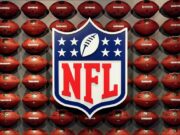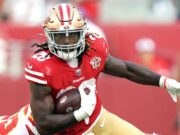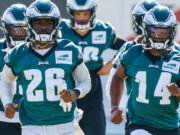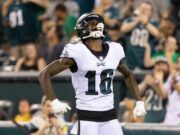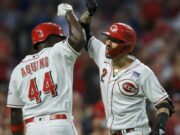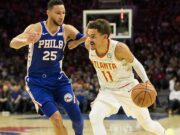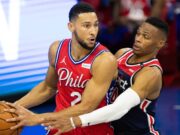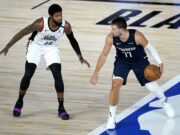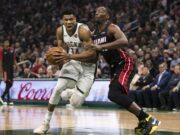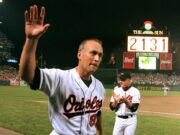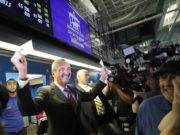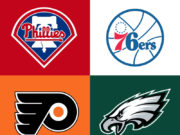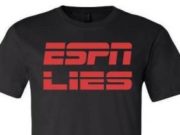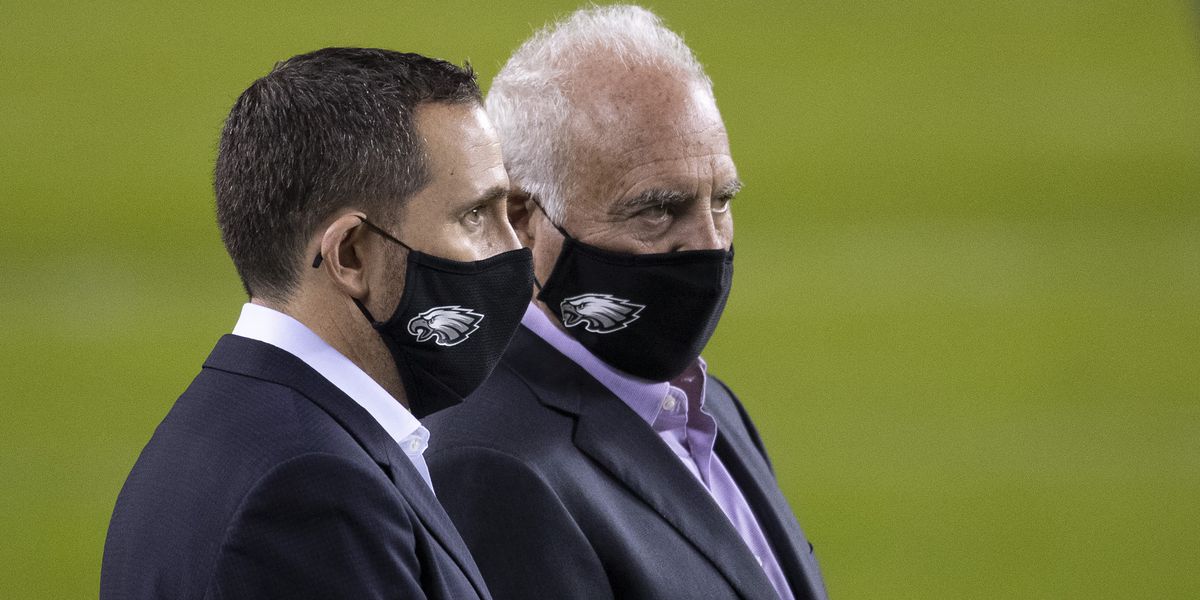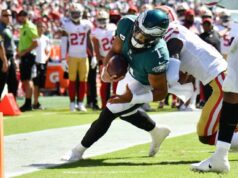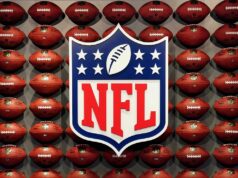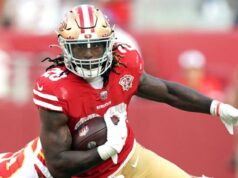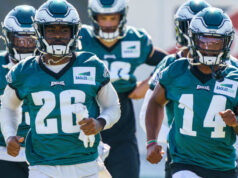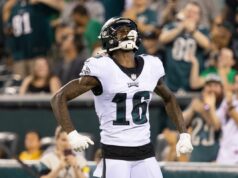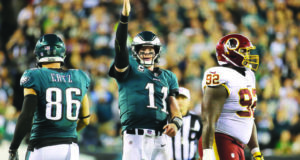The phrase “Hindsight is 2020” is one that most, if not all, people are familiar with. It means that it’s easier for us to evaluate certain situations when we look back on them as being part of the past as opposed to looking at and evaluating them in the present moment.
The 2020 season has been a disaster for the Eagles to say the very least. Despite there still being hopes for the playoffs because of the lackluster NFC East division that they play in, those hopes came to an overdue end in the blowout loss to the Dallas Cowboys in Week 16. And despite coaches, players, and some fans saying that it’s always best to get into the playoffs, the harsh reality is that doing so would have been a curse in disguise. The 2020 Philadelphia Eagles just are not a playoff-caliber team.
Some may argue with me and say that the Eagles started to play at a high level once Jalen Hurts became the starter. They had an impressive win over the New Orleans Saints (albeit with Taysom Hill at QB, not Drew Brees) and almost pulled off a late win against the Arizona Cardinals. Hurts sparked the team ever since he took over in the second half against the Green Bay Packers, and players in all 3 phases elevated their play.
However, therein lies part of the problem. That spark that Jalen Hurts provided was bound to fade away at some point. And when it did, we were reminded who the players and coaches really were on a consistent basis. The same issues that have been lingering with this team for most of the season such as a bad and banged-up offensive line, lack of separation from receivers, undisciplined penalties, and overly pass-happy play calling all resurfaced once again.
That in turn affected Hurts as well. A lot of the concerns draft analysts had about Jalen Hurts’ game pre-draft came to light, most notably his tendency to abandon the pocket after one read. He also struggled processing through reads while he was in the pocket, resulting in him either not seeing open receivers or being reluctant to throw it to them.
Jalen Hurts failed to hit Miles Sanders on several plays against the Dallas Cowboys.
Full Film Breakdown Video: https://t.co/ZEZVAVaYcB pic.twitter.com/mPSxb2du0l
— Charles “Chux” Maranan (@ChuxMaranan) December 29, 2020
The point that the Eagles have been a bad team all season should be well established and come as no surprise to anyone. But now we need to ask ourselves what went wrong, why it happened, and who exactly deserves the majority of the blame for it.
Before the season started most in the media and amongst this fan base expected the Eagles to, at the very least, be an above .500 team that would compete for the division and could make some noise in the playoffs. Obviously, looking back those projections were way off.
There undoubtedly were factors that you can’t predict, primarily injuries (although when it comes to the Eagles, you’ve pretty much got to expect them at this point). And the whole situation with the Covid-19 pandemic certainly played a part in affecting not only the Eagles but every team in the league as well.
We also need to point out was the play of the franchise QB Carson Wentz. If anyone tries saying they saw the regression of Wentz happening they’d be lying to your face. You can argue all you want about whether he’s truly an elite-level QB, and I’d be ok with you said he isn’t. But his downfall this season has been the biggest regression I’ve personally seen from a QB ever. No one could have expected this happening to him.
However, if you look at very closely and dissect several of the other problems that haunted this Eagles team this season, an argument could be made that many of them could have, and should have, been predicted going into the season. And while some were pointed out as possible concerns, the accumulation of everything happening altogether has been alarming and a huge wake-up call.
Let’s rewind to the Eagles’ Week 12 matchup against the Seattle Seahawks on Monday Night Football. The Eagles were on their way to losing the game, and late in the 4th quarter the ESPN broadcast crew of Steve Levy, Louis Riddick, and Brian Griese gave some interesting opinions on the state of the team.
My favorite part of the Eagles-Seahawks game: @LRiddickESPN & @briangriese preaching on the situation with Carson Wentz and the issues within the Eagles organization. Everything here is TRUTH.
Louis Riddick needs to come back to the Eagles as GM. pic.twitter.com/iZ50UeFC8u
— Charles “Chux” Maranan (@ChuxMaranan) December 1, 2020
Injuries are generally unpredictable. The regression of Carson Wentz was unpredictable. The pandemic was unpredictable. But the lack of premiere talent, as well as depth in key positions on this roster, should have been evident from the beginning and not just brushed aside.
Almost everyone knew that Miles Sanders was going to be the featured RB of this offense. He’s too talented not to be, and he’s made impressive strides as a runner this year compared to last. But we also knew that the team still needed a reliable RB2 that could spell him and handle a few carries a game behind him. However, the Eagles settled with Boston Scott and a Super Bowl “Hero” Corey Clement. Needless to say, neither of them was the answer. They eventually brought Jordan Howard back after he was waived by the Miami Dolphins, but it’s easy to see that he’s not the answer either.
Good path and footwork here by Miles Sanders. He’s learning how to be more controlled.
Full Film Breakdown Video: https://t.co/g5LCXXqhM5 pic.twitter.com/eZE6c4G3oz
— Charles “Chux” Maranan (@ChuxMaranan) December 29, 2020
After last season one of the biggest needs, and maybe the biggest, was the WR position. However, instead of bringing in a reliable veteran free agent, they chose to bank on the health of DeSean Jackson and Alshon Jeffery for another season. They also traded for Marquise Goodwin, who ended up opting out due to Covid. They did draft Jalen Reagor in the 1st round, but then added 2 late-round WRs in John Hightower and Quez Watkins and tried telling us that both would be suitable upgrades for depth. Oh, and they hoped 2019 2nd round pick JJ Arcega-Whiteside would progress in his sophomore season, but we all know how that turned out.
The Eagles have had a reputation of neglecting the LB position over the past several years, choosing to prioritize the defensive line and even the secondary over it. That’s all fine and dandy until your projected starters going into the season are Nate Gerry, Duke Riley, and Jatavis Brown, who ended up surprisingly retiring right before training camp. Apparently, drafting Davion Taylor, who was easily seen as a project, in the 3rd round was enough for them.
The biggest offseason move for the Eagles was the acquisition of Darius Slay, who has played up to expectations and has not disappointed. But the question after that was who would play opposite of him? The team’s answer was Avonte Maddox, who is made to play in the slot, not on the outside. And as far as depth goes, Jalen Mills was enough for them to feel comfortable going into the 2020 season. This was the same Jalen Mills whom they also moved to safety, which hasn’t worked out well either.
I could keep going and point out several other holes in the roster, but I’ll leave it at that.
The final flaw I will point out though is that of the Offensive Coordinator, or in the Eagles’ case, the absence of one. After firing Mike Groh and going on a search for the team’s next OC it was decided that no one would be hired to fill that role. Instead, a bevy of offensive assistants was put in place under Doug Pederson, who would remain in charge of designing and calling the offense. This move was met with mixed opinions. Some felt that with it being Pederson’s offense that the transition would be easy. Others felt as though Pederson was putting too much on his plate.
Considering how much the offense struggled this season, one must wonder how great of an offensive mind Pederson truly is. His offensive system and play-calling have been under heavy criticism after the departure of Frank Reich, and this season has only added more fuel to the fire.
The offense looked vanilla and predictable while Wentz was the starter, with constant vertical route concepts, a lack of designed QB rollouts to get Wentz on the move, and a reluctance to run the ball.
Under Hurts the play calling and designs have looked different, as Pederson has done a good job at calling plays that meet Hurts’ strengths. But although he does deserve credit for that, the following questions remain: why does he continue to call better plays for his backup quarterbacks, and why does he continue to not commit to a balanced running attack with Miles Sanders?
Doug Pederson holds himself accountable for the @Eagles struggles. #Eagles | #DougPederson | #NFL | #FlyEaglesFly pic.twitter.com/c5RZIpJFOJ
— A2D Radio (@a2dradio_com) December 28, 2020
Ultimately, the lack of talent on the roster as well as the usage of the current talent highlights what Louis Riddick mentioned in the video shown prior. There’s a lack of continuity from the top of the organization all the way down to the bottom, and it all starts with Howie Roseman.
Roseman found success years ago by making an abundance of good trades and being aggressive in free agency. It wasn’t so much that he acquired a ton of big-name free agents, but that he found the right ones at a good price. He had the perfect mix of players to go with a remarkable coaching staff in 2017, which led to the Super Bowl Championship.
However, that method of team building was never going to be sustainable over a long period of time, and Roseman knew that. The way you build a team with sustained success year to year is through the draft. So, while in 2018 and 2019 the amount of draft picks the Eagles had been at a premium, Roseman decided in 2020 to hold onto their picks. That prevented him from trading for guys like Minkah Fitzpatrick and Jalen Ramsey, but he was insistent on holding onto his draft assets. 2020 was going to be the year where Roseman finally started to prioritize the NFL Draft over everything else.
The problem is that Roseman’s shortcomings with the draft never left him.
You can be on whatever side of the Jalen Reagor – Justin Jefferson debate that you want, but regardless it doesn’t look good when the player Roseman passed on is having one of the best rookie seasons for a WR in recent history, while the player Roseman ended selecting… isn’t.
I already mentioned the selection of Davion Taylor in the 3rd round and how it doesn’t make sense to select a project that early.
The biggest kicker of them all though is the one we continue to talk about: selecting Jalen Hurts in the 2nd round instead of drafting an immediate contributor and weapons like Jeremy Chinn or JK Dobbins.
We can all dissect and analyze these selections to no end. But whether some players from the 2020 draft turn out to be great players eventually in a year or two isn’t the point. The accumulation of bad drafting from 2017 until now has resulted in a severe lack of young, foundational players on the roster as it stands right now. And when you don’t have them, you’re going to have a difficult time winning.
Jeff Lurie might have a blindspot when it comes to Howie Roseman but he’s not completely blind. https://t.co/H2mXNHceOW
— Dave Zangaro (@DZangaroNBCS) December 31, 2020
The failure of the 2020 Philadelphia Eagles was something we all should have seen coming. It’s easy to look back and make that assessment now but based on what we know about how to build a winning organization we had to have known that what the Eagles were doing wasn’t it.
Alas, 2020 is behind us. The important thing is to look forward to the future. It’s a tradition for people to make New Year’s Resolutions in hopes of improving upon their mistakes to be better people. We can only hope that the Philadelphia Eagles, from Jeffrey Lurie down to the starting QB (whoever it may be), will not only have the right resolutions in place but also the means to achieve them too. This way, we’ll no longer have to look back on what turned out to be another bad football team that failed to get better.


